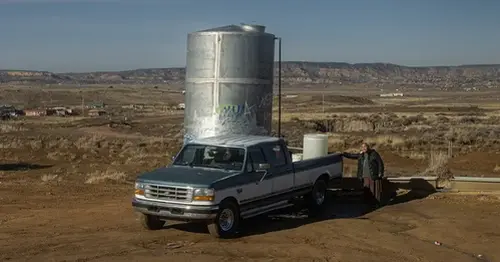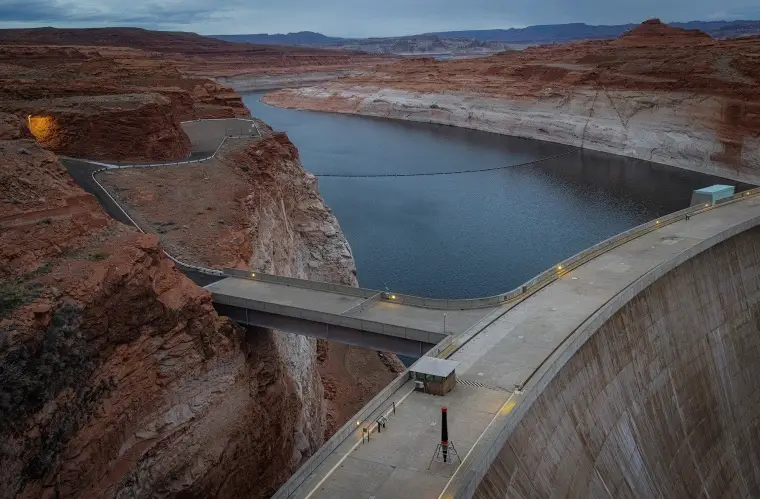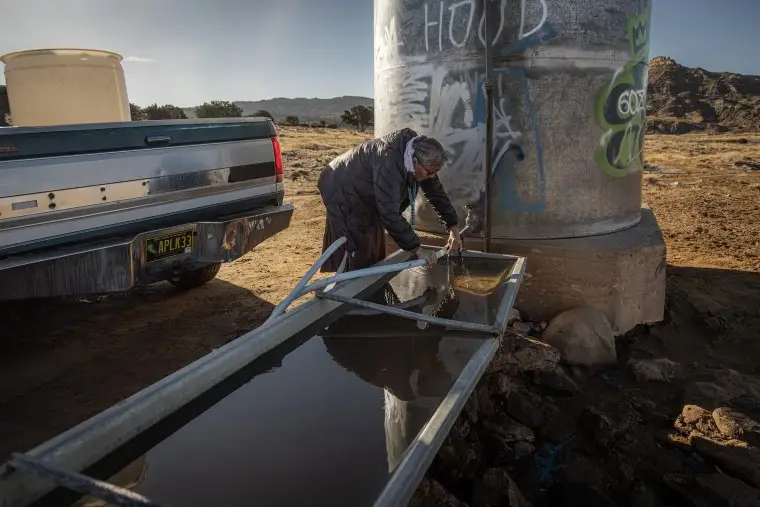
Supreme Court weighs Navajo Nation water rights dispute
WASHINGTON — The Supreme Court on Monday considers whether to allow the Navajo Nation to pursue a claim that the federal government has a duty to address the Native American tribe's water rights.
The case touches upon the complex array of agreements and court decisions that over decades have dictated how the waters of the Colorado River, divided into upper and lower sections, are allocated among the states. Further complicating matters, the Colorado River system is already depleted due to long-term drought conditions, with the longer-term threat of climate change looming in the future.
The tribe, citing years of mistreatment, wants rights to waters in the Lower Colorado River that flows along the Navajo reservation's northwestern border. The tribe’s land, the largest Native American reservation, is mostly in Arizona but also crosses into New Mexico and Utah.
The justices are hearing two consolidated appeals — one brought by the federal government and another by the states of Arizona, Nevada and Colorado, in addition to several California water districts.
The Biden administration and the three states appealed after the San Francisco-based 9th U.S. Circuit Court of Appeals ruled in favor of the Navajo Nation in 2021, saying it could sue the government for an alleged failure to carry out its duties on behalf of the tribe.
The dispute is over whether the government had a legal duty that the tribe can enforce in court. The tribe, which first signed a treaty with the United States in 1849, argues that under its agreements with the federal government that assured it would have access to land, it was assumed that the government also had a duty to provide necessary water.
The federal government says the tribe is seeking to reopen already decided cases that determine how water in the river is allocated.

“The United States has a general trust relationship with Indian tribes," Solicitor General Elizabeth Prelogar wrote in court papers. "But the existence of that general relationship does not itself establish any judicially enforceable duties against the United States."
The tribe argues that it is not seeking a decision on rights to the lower Colorado River specifically. Instead, its lawyers say that the federal government’s oversight of the entire Colorado River as well as its duties to the tribe mean that it is required to do a full assessment of the Navajo Nation’s water rights, which may affect how water from the Colorado River is allocated.
Colorado’s lawyers said in that state’s brief that a ruling for the tribe would cause “immediate and long-term disruptions to the coordinated management of the Colorado River."
States point out they are already implementing a 2007 agreement on water shortages as well as a drought contingency plan adopted in 2019.

The Navajo Nation can access water from other sources, including the San Juan River, a tributary of the Colorado River, but the tribe says that is not enough. Many tribal members do not have access to running water and rely on wells and other localized water sources.
The tribe originally sued the federal government in 2003 seeking access to the main branch of the lower Colorado River, with the litigation dragging on ever since. In separate litigation in state court the tribe has fought for access to the Little Colorado River, another tributary of the Colorado River.






